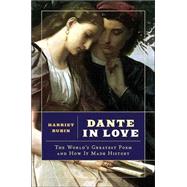
| Touching the Depths | |
| A Time Run by Dreamers and Their Dreams | |
| The High Middle Ages reached their greatest height in a brief thirty-year period, when the thirteenth century ended and the fourteenth century began -- the source of the great institutions we call modern | |
| The Difference Between One Who Knows and One Who Undergoes | |
| In this tale of how Dante, ill-fated fugitive, became Dante, creator of a masterpiece that influences readers from beyond the grave, we take a look at how readers become Dantisti pursuing the art of perfection as did their master | |
| Why anti-Shakespearians see farther | |
| The reward of happiness and genius for readers of The Divine Comedy | |
| Inferno (1304-8) | |
| The Fearful Infant Whose Ravenous Hunger Cannot Be Satisfied | |
| Two worlds that define the High Middle Ages: poverty and plenty; purity and power | |
| The fanaticism of ambition shapes both church and state | |
| Pope Boniface VIII is Dante's dark twin St Francis, who gave Italy poetry, is Dante's vagabond hero | |
| Giotto, who raised the modestly human to the level of high art, defines the third element of achievement in these expansionist times | |
| Throughout Italy, the search for the grail shifts to the search for sugar, cinnamon and gold | |
| Dante experiences this double, squinting time of spiritual forces and commerce as he enters the wilderness of the Inferno | |
| The Ogre of the Brotherhood | |
| The death of poet Guido Cavalcanti, Dante's first friend and "brother" in the Fedeli d' Amore -- "the brotherhood of the faithful in love." Was Dante responsible? | |
| The birth of poetry; the first time the word "love" is uttered and Dante's vow to write what had never been written before | |
| The blend of asceticism and passionate desire that led to conflicts among the brotherhood | |
| Dante's sorrows take on a new depth as he travels deeper into the Inferno | |
| The Golden SpermHow Dante constructed the Comedy | |
| The poet vies with the ghost of St. Thomas Aquinas, author of "that other epic," the Summa Theologica, to lift poetry from its bookish deadness | |
| He studies "alchemy" -- literally, "golden sperm" -- for a new language, and finds a means by which loss can be reversed | |
| The Difficult Discipline of "As Pleased Another"Can failure be reversed? | |
| Wandering the open roads of Italy, an outcast and fugitive with a death warrant hanging over his head, Dante compares himself to the heroic wanderer Ulysses and his failed last voyage | |
| To what can one aspire that is free of the deadlock of ambition? One can try to see morally and aesthetically, looking for the divine in things, learning to read "the mystery of history," which is that "God writes straight with crooked lines." | |
| Virgin DiscoveriesA woman takes on the role of a god | |
| Dante, in the midst of this revolution, discovers the feminine mysteries | |
| Something very dramatic had happened between the two notions of tenderness: piety and pity -- between ancient warrior Aeneas's pious devotion to his father and Michelangelo's Renaissance Pietà: the sculpture of a young woman cradling her dead son in her lap | |
| Out of this, the definition of genius becomes linked with sweetness | |
| Dante prepares for meeting his dead lover, Beatrice | |
| Number-Crunchers in ParisThe abduction of the papacy to Avignon, dashing hopes for a new Roman Empire | |
| Dante voyages to Paris in 1309 in the wake of the pope | |
| The new sciences and Gothic churches fill his imagination and provide him the means for Paradise and Paradiso: "sacred geometry," apparent in the magisterial Gothic cathedrals that are rare in Italy but which dominate France | |
| "We Have Tears for Things," Said VirgilThe saddest moment in literature is not when Juliet dies undeflowered, Byron said, but wh | |
| Table of Contents provided by Publisher. All Rights Reserved. |
The New copy of this book will include any supplemental materials advertised. Please check the title of the book to determine if it should include any access cards, study guides, lab manuals, CDs, etc.
The Used, Rental and eBook copies of this book are not guaranteed to include any supplemental materials. Typically, only the book itself is included. This is true even if the title states it includes any access cards, study guides, lab manuals, CDs, etc.